(Yes, Mo’Kelly already knows this is not the popular opinion right now. But since when has Mo’Kelly gone with conventional wisdom or striven to ride the consensus bus?)
Aretha says she wants Halle for the part. Aretha now says she has Halle for the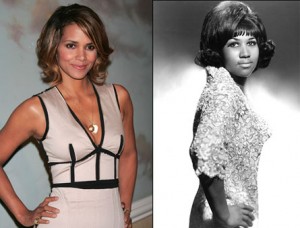 part. Halle’s public remarks indicate she’s reticent to play the role due to her self-acknowledged lack of singing ability.
part. Halle’s public remarks indicate she’s reticent to play the role due to her self-acknowledged lack of singing ability.
Critics of the purported casting for the upcoming Franklin biopic say Berry is the wrong choice for a number of reasons, from supposed body type to even assailing her acting ability.
Mo’Kelly is not one of those critics and has a bevy of reasons why.
It’s unfortunate but reaffirms why it is so difficult to please African-American audiences when it comes to this specific film genre. If history is any yardstick, it is more in support of Berry playing the character than opposed to it.
Despite the common images of Aretha Franklin in her later years, anyone familiar with the Franklin of the 60s remember the slim yet hyper-curvy songstress serving as a de facto pin-up model for Black men of the generation. In this respect, Berry is an obvious and apt choice.
Some (including my friend and fellow blogger Lynn of Hicktown Press) have suggested that Jennifer Hudson is the correct choice. No argument there really. Hudson would be a great choice…too. Let’s not forget, this is for a PORTION of Franklin’s life, a portion of the movie, not the whole.
Let’s review some movie history, both recent and distant. You may be surprised.
Superstar Beyonce may have been able to “sing” but in terms of body type, the petite diva was never comparable at any time or at any age to the much more voluptuous Etta James. Anyone familiar with the breath and depth of James’ career had to suspend considerable disbelief to at least physically imagine Beyonce as comparable in nature.
They aren’t.
Granted, the visuals of Beyonce singing were likely more plausible as the
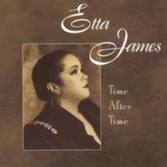
throat actions of a professional singer simply can not be duplicated through mere lip-synching. There are physical and visible muscle contractions of the throat and diaphragm in someone actually singing. Trained eyes immediately recognize this fact every single time. Talent can’t be taught, but the technique to mimic it can, which could carry lip-synch scenes.
It gets complicated during scenes when the actor in question needs to sing a line or two as extension of the behavior of the character, beyond the actual performance scenes. (Here, the choice of Jennifer Hudson likely seems more appealing to many.) Nevertheless, it’s not a prerequisite. Accordingly, nobody spent much time criticizing Larenz Tate as a “non-singer” as the tragic Frankie Lymon in Why Do Fools Fall in Love? (in which Berry also co-starred).
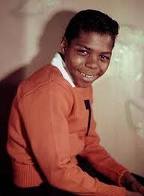
In fact, the late Gary Coleman would have been a better choice if the yardstick of visual similarity was as important as some would have you believe. Tate was about as close to Lymon in appearance as Mo’Kelly is to Ike Turner and by most accounts Tate can’t sing a lick.
But speaking of Ike…
Nobody roundly criticized Angela Bassett as a “non-singer” prior to donning the wild wig and miniskirt to bring the violent life of Tina Turner to the big screen in What’s Love Got to Do with It? Which then begs the question, are movie patrons more interested in the underlying story (read: pathology) when it comes to musical biopics or are they more concerned with visual authenticity?
It then comes down to whether the story of Aretha Franklin will be one more focused on the songs or the underlying struggle; moving from sacred to secular music and the painful process endured. Will the music be a footnote or the featured point of the production? The answer is key. Again, history is on Berry’s side. Most of the Black musical biopics are remembered for the emotion-filled performances off the stage, as opposed to those on them.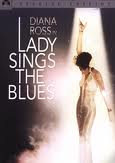
Was Diana Ross considered spectacular in Lady Sings the Blues for her on-stage depiction of jazz legend Billie Holiday?
No. And just FYI, Ross and Holiday look (and sound) nothing alike.
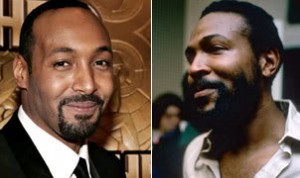 Can either Jesse L. Martin of Law & Order or rapper Common hold a note and was that even a lead consideration in the possible casting of either to portray soul legend Marvin Gaye?
Can either Jesse L. Martin of Law & Order or rapper Common hold a note and was that even a lead consideration in the possible casting of either to portray soul legend Marvin Gaye?
No.
Can Don Cheadle likely pull off the correct horn armbrushure to fool jazz enthusiasts when he sets out to become Miles Davis? Had he ever played the trumpet before in life prior to studying for the role?
Probably not. (Although Cheadle had saxophone lessons in the past, the instruments require altogether different musical expertise. Much like actual singing, it’s most difficult to fake.)
Will Smith as Muhammad Ali? Didn’t believe it until Mo’Kelly saw the movie for himself. Boxing isn’t music but calls into question certain physical skills that are difficult to fake.
Leon as Little Richard? He was a horrible lip-syncher in The Five Heartbeats 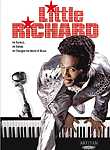 and equally as bad in Little Richard. Neither production suffered because of it. Both times he turned in quality performances. And yes Mo’Kelly is aware The Five Heartbeats was a fictitious group and not technically a biopic…don’t stray off topic folks. Mo’Kelly knows what you’re thinking.
and equally as bad in Little Richard. Neither production suffered because of it. Both times he turned in quality performances. And yes Mo’Kelly is aware The Five Heartbeats was a fictitious group and not technically a biopic…don’t stray off topic folks. Mo’Kelly knows what you’re thinking.
Arguably the only movie (biopic) that managed to score on both points (musical ability and visual parity) would be Ray, which featured the Oscar-winning performance of Jamie Foxx. If there was any artist who was as legendary in musical lore as Ray Charles, Aretha Franklin is in the conversation. And since Foxx knocked it out of the proverbial ball park and is a musician in his own right, subsequent music biopics are held to a higher standard. Mo’Kelly suspects this is the true origin of the Berry criticism. Let’s not forget though, nobody considered Foxx as a dramatic actor worthy of such a weighty role prior to its release. This is an inexact science.
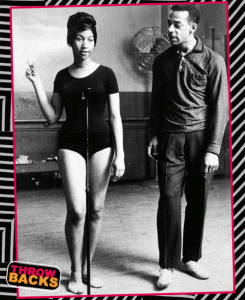
Nevertheless, history still is on Berry’s side.
The overwhelming majority of Black music biopics have sought to feature “story” over “song.” Viewers already know the music, the whole point of the genre in theory is the untold story, not the familiar songs, all of which are available on iTunes. The strength of the portrayal will mean far more than the believability of the performance vignettes.
Halle Berry as a young Aretha Franklin could work and history is rife with examples of similar, yet seemingly disparate castings. The challenge will be enduring the endless criticism that inevitably comes with stepping in the shoes of towering figures, ones who’ve laid the musical soundtrack to most of our lives.
Rock Steady Halle.
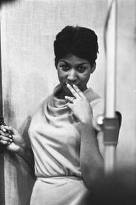
The Mo’Kelly Report is an entertainment journal with a political slant; published at The Huffington Post and www.eurweb.com. It is meant to inform, infuse and incite meaningful discourse…as well as entertain. For more Mo’Kelly, https://mrmokelly.com. Mr. Mo’Kelly can be reached at [email protected].
Free Subscription to The Mo’Kelly Report HERE
Follow The Mo’Kelly Report on Facebook Network Blogs HERE.
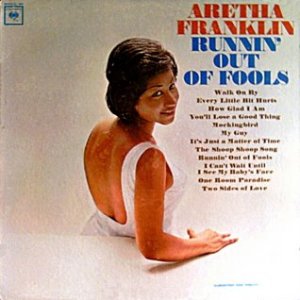
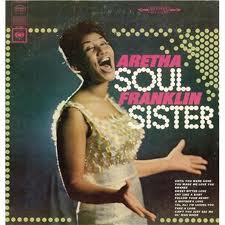
6 responses to “History Shows – Halle Berry ‘Works’ as Young Aretha Franklin”
Mo stated:
“It’s unfortunate but reaffirms why it is so difficult to please African-American audiences when it comes to this specific film genre.”
AA audiences also like authentic biopics. We are not easily fooled. Will Halle wear a fat suit, too tight clothes and bad wigs? Just wondering.
Basically Aretha can choose whomever she wants. That’s her perogative. Oh well.
Janell…it takes a lot of work to ignore all the pictures I posted to make such a point. Clearly you refuse to acquaint yourself with the fullness of Aretha’s career. Your youth is showing. And it is spelled “prerogative”…and yes it is hers.
Halle Berry only ‘works’ as a young Aretha Franklin if Halle ‘works’ it. She obviously doesn’t want the role (for varying reasons) or she would have it. This is her polite and political way of saying ‘no, thank you’.
Sidenote: Mo, you did an excellent job with this article of showing a younger generation how fine Aretha was back in the day. Unfortunately, her present image entrenched in obesity is where the visual and her voice are reconciled in many minds… I think Jennifer is the obvious choice. On the heels of an astonishing Weight Watchers campaign and reviews of her current Winnie Mandela biopic which are not too favorable, I’d say she’s a shoe-in!
It would take a great actress to pull this off if the person has no resemblance to Aretha. If Halle were to take the part, she would have to put in the acting job of life to make us view her as Aretha.
Example: Ray Charles. I FORGOT that Jamie was Jamie. He was so fascinating that as far as I was concerned, he WAS Ray Charles. And he looked like him.
Even Will Smith somewhat pulled off his Muhammed Ali role. He favored him and he sounded like him.
So we’ll see…
P.S. – The link you posted to my article is broken somehow.
Here it is:
http://www.hicktownpress.com/halle-to-play-aretha/
Will fix now.